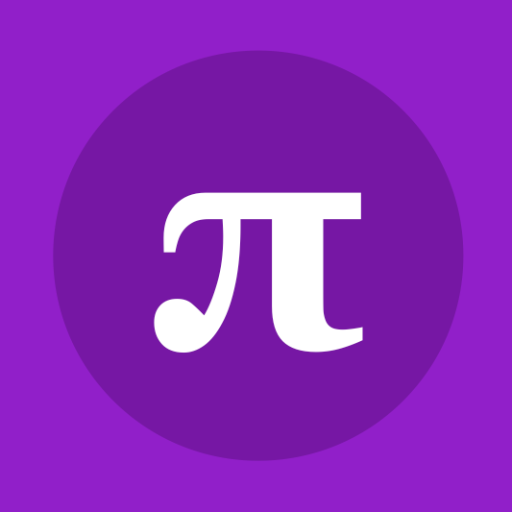C#: Xamarin Cross-Platform App Development-C# Xamarin cross-platform apps
AI-powered cross-platform app development
Create a health tracking app for Android and iOS.
Optimize performance for a Xamarin.Forms app.
Implement responsive design in Xamarin.
Integrate Azure services with a Xamarin app.
Related Tools
Load More
C# Expert
Advanced C# programming insights and best practices
C# Expert
Direct C# expert for precise, actionable coding advice.

.NET Core Expert
I'm an Expert Senior .NET Core Developer, skilled in C# and .NET Core technologies.

🥰 Awesome .NET MAUI helper 💪
🫵 Your personal expert in .NET MAUI, mobile UX/UI, and CI/CD automation for building, signing and publishing the application integrated with GitHub Actions.

C# XAML Csharp GPT
Specialized GPT for desktop app development in C# & related languages. Offers debugging, styling, DB integration, error handling & more. Csharp

DotNet Developer
Microsoft .NET and C# expert for coding advice.
20.0 / 5 (200 votes)
Introduction to C#: Xamarin Cross-Platform App Development
C# with Xamarin is a powerful framework designed to enable cross-platform mobile application development, primarily for iOS and Android, using a single shared codebase. Xamarin is part of the .NET ecosystem, which allows developers to write code in C# and share business logic across platforms while still accessing native APIs and UI elements for each platform. Xamarin consists of two main approaches: Xamarin.Forms, which focuses on UI elements that are shared across platforms, and Xamarin.Native (Xamarin.Android and Xamarin.iOS), which allows developers to write platform-specific UI code while reusing the core logic. A key design purpose of Xamarin is to streamline the development process by reducing the need to write platform-specific code. This is done by sharing code, particularly the business logic and data models, across iOS, Android, and other platforms like Windows. Xamarin.Forms goes a step further by allowing UI components to be shared, ensuring a consistent look and feel across different devices, which can be customized with platform-specific nuances when necessary. For example, a fitness tracking app can be developed using Xamarin.Forms, where the core features like user authentication, workout tracking, and data analysis are written in shared C# code. The UI can also be unified using Xamarin.Forms controls like StackLayout, Entry, and Button. However, platform-specific features such as accessing the iPhone's HealthKit API or Android's Google Fit API can be done with platform-specific code. This reduces development time, ensuring that the app is optimized for both platforms without duplicating efforts.

Main Functions of C#: Xamarin Cross-Platform App Development
Cross-Platform Development with Shared Codebase
Example
Building a mobile e-commerce application where features like user authentication, product catalog browsing, and payment processing are shared across both iOS and Android platforms.
Scenario
In a real-world scenario, a retail business can quickly launch an app for both iOS and Android. Instead of creating separate apps for each platform, developers can write the core functionalities like fetching products from an API, managing a shopping cart, and handling payments once in C#. Xamarin.Forms can be used to create a consistent UI, while Xamarin's platform-specific code allows features like Android push notifications or iOS in-app purchases to be integrated as needed.
Native API Access with Xamarin.Native
Example
Creating a mobile banking app that requires access to platform-specific features such as Face ID authentication on iOS and fingerprint authentication on Android.
Scenario
When building a secure banking app, developers need access to native APIs like biometric authentication for additional security. Using Xamarin.Native, developers can write platform-specific UI and access the native API for features such as Face ID (iOS) or fingerprint (Android). However, the core banking logic, like transactions and balance checking, can be shared across platforms.
Integration with Device-Specific Features
Example
A location-based app that tracks the user's movement and delivers notifications based on their location, like a fitness app that monitors a runner's route and provides performance stats.
Scenario
In this case, the app can use Xamarin.Essentials to access device-specific features such as GPS and accelerometer data. A fitness app developer can use Xamarin.Forms to create the UI, but leverage device-specific features like location tracking, step counting, or notifications to provide real-time feedback to the user. This approach allows the app to work consistently across different devices without having to write platform-specific code from scratch.
Ideal Users of C#: Xamarin Cross-Platform App Development
Enterprises and Large Organizations
For enterprises that need to deliver mobile solutions across multiple platforms quickly, Xamarin provides a highly efficient way to share code and reduce development time. This is especially beneficial for businesses with large development teams that need to maintain complex applications. Xamarin also supports enterprise-level features such as secure data handling, integration with backend services like Azure, and scalability, making it an ideal choice for enterprise-grade mobile apps.
Independent Developers and Small to Medium-Sized Businesses (SMBs)
Xamarin is highly appealing to independent developers and SMBs who want to maximize their budget and development resources by leveraging a shared codebase. For example, an independent developer working on a startup project can write one version of their app in C# and deploy it across both iOS and Android, reducing the overhead of maintaining separate codebases. SMBs benefit from faster development cycles and lower maintenance costs without compromising on quality or native-like performance.

How to Use C#: Xamarin Cross-Platform App Development
Visit aichatonline.org for a free trial without login
Go to the website to explore and start your journey into cross-platform development with Xamarin using C#. No ChatGPT Plus subscription is needed.
Install Visual Studio with Xamarin
Download and install Visual Studio, ensuring that Xamarin is included in the installation. Xamarin provides cross-platform capabilities directly within Visual Studio.
Set up Xamarin project
Create a new Xamarin.Forms project from the project templates in Visual Studio. This will provide the basic structure to develop apps for Android, iOS, and more using shared C# code.
Develop the UI using Xamarin.Forms
Use Xamarin.Forms XAML to design the UI. This allows for a shared user interface across platforms, but you can still implement platform-specific customizations if needed.
Build and test your app
Compile and test your app on both Android and iOS emulators, ensuring that the app performs well on multiple devices. Use Visual Studio's debugging tools to find and resolve any issues.
Try other advanced and practical GPTs
Negotiate GPT
AI-Powered Negotiation Mastery.

True Review GPT
AI-powered tool for reliable reviews.

Panel Scene Illustrator
AI-powered comic strip creation tool

Albert Einstein's Debate Panel
AI-powered debates, moderated by Einstein.

Expert Panel v2.0
AI-powered multi-expert discussions for all.

IT-Security & Data Protection
AI-powered IT security and compliance monitoring

Social Work Templates
AI-Enhanced Documentation for Social Workers

Canadian Text
AI-powered text refinement for Canadians.

Italian Tutor
AI-powered Italian language tutor

English↔Italian / Inglese↔Italiano Translator
AI-powered translator for precise English-Italian translations

Shopping Berater Lifestyle Mode Schmuck
Discover luxury fashion with AI precision

Math Solver 👉🏼 Improved Mode
AI-powered solutions for complex math problems

- E-commerce
- Mobile Apps
- Cross-Platform
- Enterprise Solutions
- Business Software
Common Questions About C#: Xamarin Cross-Platform App Development
What is Xamarin, and how does it differ from native development?
Xamarin allows developers to write cross-platform apps in C#, sharing most of the codebase across Android, iOS, and other platforms, while native development requires separate codebases for each platform. Xamarin ensures native performance and access to device APIs, making it a powerful alternative to writing separate apps.
Can I create fully native apps using Xamarin?
Yes, Xamarin allows you to create apps with native performance, using C# to access platform-specific APIs when necessary. With Xamarin.Forms, most of the UI can be shared, but you can implement native-specific views or features as needed.
How is Xamarin.Forms different from Xamarin.Native?
Xamarin.Forms is used to build UI components that can be shared across platforms with a single codebase, ideal for simple or medium complexity UIs. Xamarin.Native (i.e., Xamarin.iOS and Xamarin.Android) allows for more control over the UI and is often used when apps require a highly customized or performance-critical design.
What are some common use cases for Xamarin?
Common use cases include business applications, e-commerce platforms, social media apps, and IoT interfaces where a single codebase can save time and ensure consistent functionality across platforms.
What tools and frameworks are essential for Xamarin development?
Essential tools include Visual Studio, Xamarin.Forms, .NET for cross-platform development, and various NuGet packages for integrating libraries. Testing and debugging tools like Xamarin Test Cloud and frameworks such as NUnit are vital for ensuring app reliability.